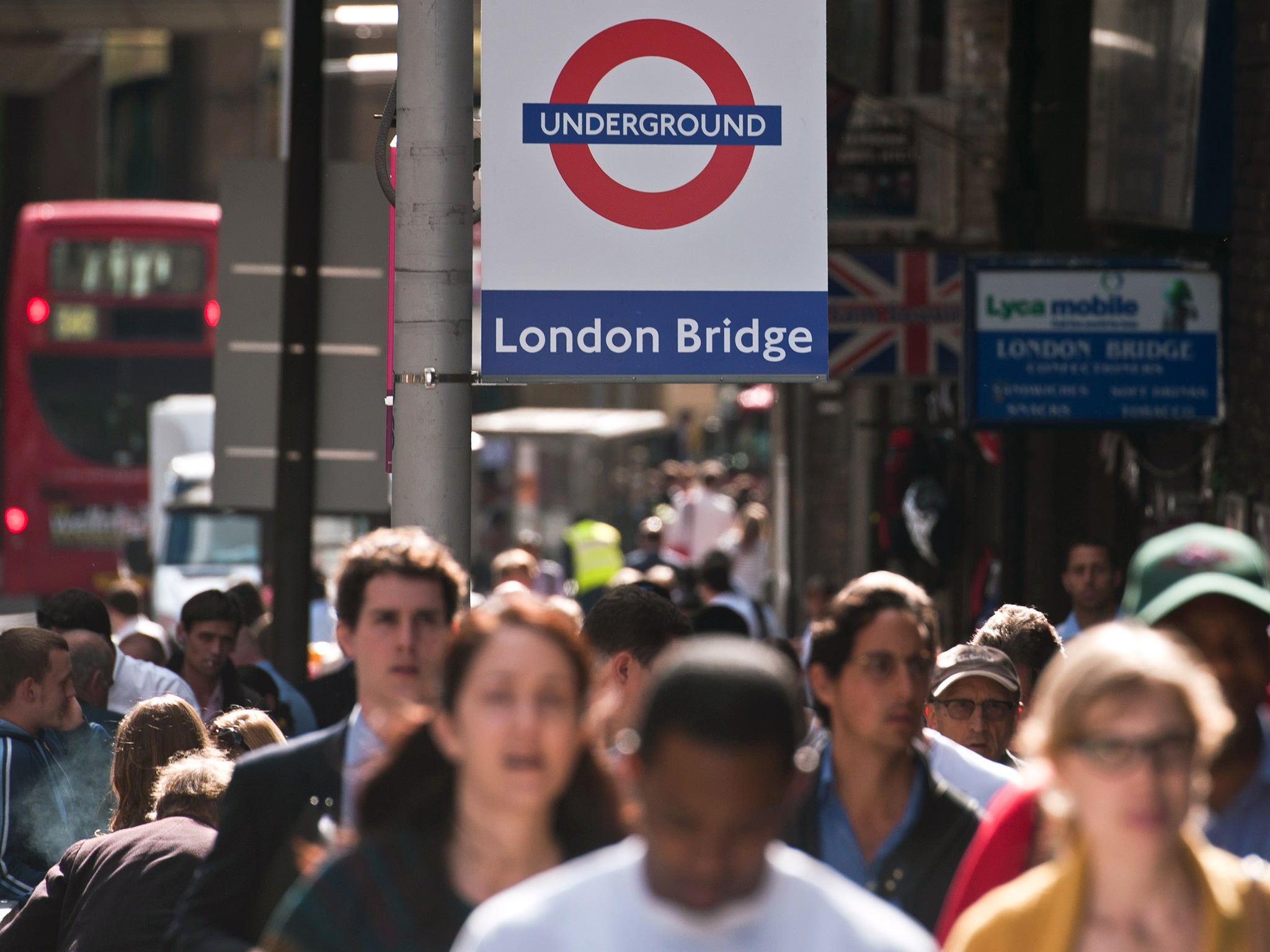Now we are 63.7m: UK had biggest population growth in Europe over past year
Growth of 419,900 means UK is now the third largest EU nation behind Germany and France

Your support helps us to tell the story
From reproductive rights to climate change to Big Tech, The Independent is on the ground when the story is developing. Whether it's investigating the financials of Elon Musk's pro-Trump PAC or producing our latest documentary, 'The A Word', which shines a light on the American women fighting for reproductive rights, we know how important it is to parse out the facts from the messaging.
At such a critical moment in US history, we need reporters on the ground. Your donation allows us to keep sending journalists to speak to both sides of the story.
The Independent is trusted by Americans across the entire political spectrum. And unlike many other quality news outlets, we choose not to lock Americans out of our reporting and analysis with paywalls. We believe quality journalism should be available to everyone, paid for by those who can afford it.
Your support makes all the difference.The UK's population has grown by more than 400,000 to 63.7 million, new official figures show.
The growth of 419,900 in the past year means the UK has had the biggest growth of any country in Europe in the year to 30 June 2013 and it is now the third largest EU nation behind Germany and France, according to the Office for National Statistics (ONS) figures.
France's population grew by 319,100 in the past year to 65,480,500 while Germany's population went up by 166,200 to 80,399,300, the ONS said.
The UK had its biggest baby boom since 1972 as 813,200 births were recorded in the past year. There were 558,800 deaths during this period.
The UK's population increase can be tracked back to the fact that there were 254,400 more births than deaths and net migration levels of 165,600, the ONS said.
A drop in the smoking habit plus improvements to health treatments for circulatory illnesses has seen more men living past the 75-year marker. This is why the number of men aged 75 and over in the UK has increased by just over 26%, or 422,353, since mid-2001 to 2,043,034 now.
Migration from overseas accounted for 517,800 of the population flow into the UK while 352,100 people left the country, puttng net migration at 165,600 for the year.
The estimated population of England now stands at 53.5 million, 5.3 million in Scotland, 3.1 million in Wales and 1.8 million in Northern Ireland.
Many of the migrants to the UK are from China, India, Germany, USA, Pakistan, Poland and Australia.
The ONS noted that the birth increases are being driven by large numbers of women in their 20s and 30s who are becoming mothers along with an increase in the number of migrant families in the UK. The number of non UK-born mothers is about 26%, the ONS said.
A 104,000 surge in London's population accounts for around a quarter of the UK's 419,900 population growth.
Together London, the South East and the East of England accounted for 53% of growth across the UK in the year while Scotland, Wales and Northern Ireland jointly accounted for 8%.
More people from other parts of the UK moved to the South East than any other region, leading to a 26,000 increase in the area.
London saw the greatest numbers on the move within the UK with a net loss of more than 51,000 people who moved out, largely to the South East and East of England, the ONS data records.
The city proved to be top choice for international migrants arriving in the UK as London recorded a net international migration of 69,000 - the highest of all regions. Northern Ireland had the lowest net migration growth of around 400, the ONS said.
London also had the largest natural change of all regions as it recorded 86,000 more births than deaths in the past year while Scotland had the lowest with 4,200 more births than deaths.
Join our commenting forum
Join thought-provoking conversations, follow other Independent readers and see their replies
Comments